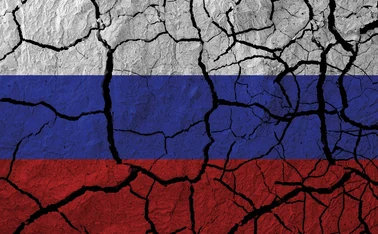
CNB board member issues warning on common bank resolution
Common banking resolution is the "most worrying" element of European plans to establish a banking union, according to Lubomir Lízal, a member of the board of the Czech National Bank (CNB).
In an interview with CentralBanking.com at the National Asset Liability Management conference in London, Lízal says that under the current plans it is still unclear who will pay for what. "I don't think it is that practical an idea as it is proposed," he says.
Lízal says it is too early to pass judgement on banking union as a whole, but senses there will be trouble ahead. "By extending the rules to the non-euro members, it creates more problems and more tensions," he says.
Lízal is also concerned by plans for a financial transaction tax to be levied by some European nations, an idea he calls "more populist than practical". He says the attempts by countries to impose the tax beyond their borders was "alarming".
No RMB reserves yet
Lízal now oversees the CNB's cash and payments systems department, but until recently he was responsible for reserves. Asked whether he expects to see the renminbi become a reserve currency, he says for the time being it is unlikely.
"Apart from the liquidity and safety, you would also like to have the currency to not be influenced by political decisions," he says. "From this perspective, I think this currency still has a long way still ahead."
Lízal adds that he does not think central banks should consider emerging market currencies as an element of their reserves, as their high returns are offset by too much risk. "For the central bank, the return is just a tertiary view," he says.
Only users who have a paid subscription or are part of a corporate subscription are able to print or copy content.
To access these options, along with all other subscription benefits, please contact info@centralbanking.com or view our subscription options here: subscriptions.centralbanking.com/subscribe
You are currently unable to print this content. Please contact info@centralbanking.com to find out more.
You are currently unable to copy this content. Please contact info@centralbanking.com to find out more.
Copyright Infopro Digital Limited. All rights reserved.
As outlined in our terms and conditions, https://www.infopro-digital.com/terms-and-conditions/subscriptions/ (point 2.4), printing is limited to a single copy.
If you would like to purchase additional rights please email info@centralbanking.com test test test
Copyright Infopro Digital Limited. All rights reserved.
You may share this content using our article tools. As outlined in our terms and conditions, https://www.infopro-digital.com/terms-and-conditions/subscriptions/ (clause 2.4), an Authorised User may only make one copy of the materials for their own personal use. You must also comply with the restrictions in clause 2.5.
If you would like to purchase additional rights please email info@centralbanking.com test test test








